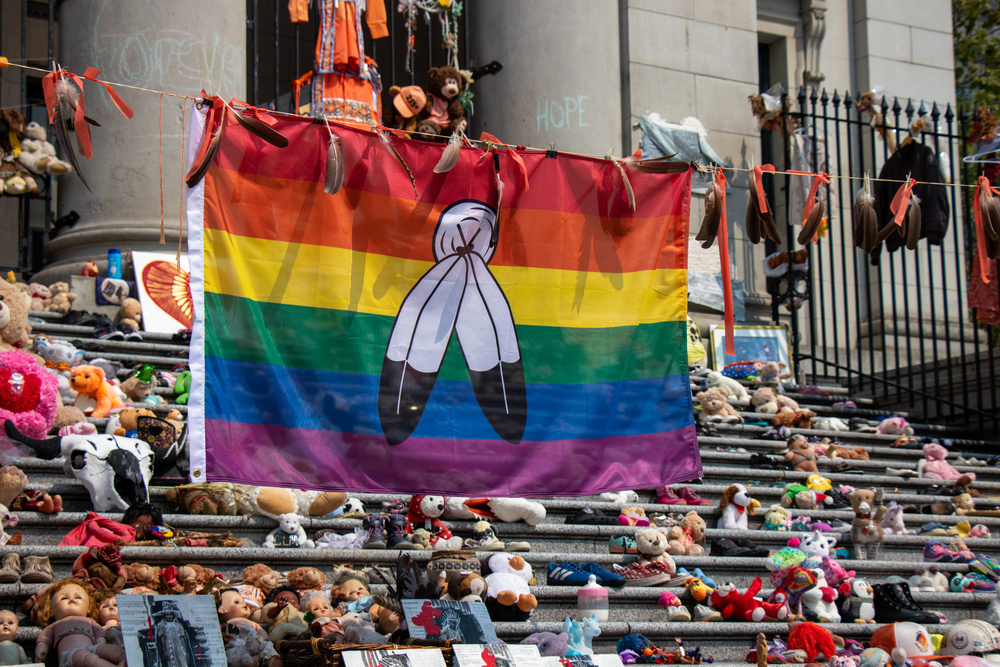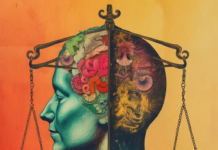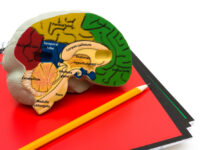The field of psychology has long been critiqued for its narrow Eurocentric focus, often at the expense of broader, diverse epistemologies. This critique is sharpened in a recent chapter by Amy Jean McElwain and her colleagues, who expose how psychology not only ignored but actively contributed to the dismantling of Indigenous practices.
This revelation is not just an academic critique but a call to action, urging the field to move beyond mere acknowledgment of past wrongs to active incorporation of Indigenous ways of knowing, being, and doing. The authors advocate for a radical integration of these marginalized perspectives to reshape the field fundamentally.
“Indigenization of psychology and decolonization of psychotherapy practice is a necessary undertaking. The benefit is in righting past wrongs that our systems harmed Indigenous communities. Decolonizing our identity and perceptions can be for all people living in oppressive constructs, both Indigenous and non. At the core of it is a humanizing aspect, a making whole, an acknowledgment of the soul,” the authors write.
“Looking at the history of psychology, which began with the study of the supernatural and spiritual to where we are now, where did we lose our way? Psychology, broken down semantically, is the study of the soul, and psychotherapy is the healing of it. The insidious nature of colonialism is the competition of ideas, theories, and ways of knowing that is inherent in academia. It has driven this discipline to rely only on empirically supported treatments and interventions. Neglecting and devaluing traditional knowledge in methods of healing. This separation of science and spirit is one of the biggest fallacies of modern knowledge generation.”
The chapter outlines a compelling case for “Two-Eyed Seeing”—a concept that merges Western scientific methods with Indigenous wisdom. By embracing this approach, psychology can begin to repair its historical damages and make strides toward a more equitable and holistic practice. This isn’t just about diversifying psychological perspectives; it’s about rectifying a historical injustice that continues to affect Indigenous communities profoundly. As the field of psychology seeks to become a force for social justice, integrating these vital perspectives could be the key to transforming both the discipline and its impact on society.
“We have missed the mark on what matters in this field. It is not surprising when considering the influence and hypnotism that colonization has in keeping us under its spell. What we have learned from the precious few Indigenous scholars who have maintained their culture and humanity while going through the identity-stripping process of acquiring their credentials is that it can be done. Operating within multiple frameworks at once, or Two-Eyed seeing is possible.”

There is little acknowledgment of the colonization of Indigenous practices that existed before the field began dictating treatment and imposing actions upon Canadian Indigenous practices, eliminating their cultural significance. Amy Jean Mcelwain and colleagues outline the harms experienced through colonization historically and the impacts on psychology today, calling for reconciliation, accountability, and tangible social action.
“The greatest challenge of modern psychology – accountable social action. By incorporating these invaluable narratives into the ethos of psychology, we can begin to undo the patriarchal and xenophobic harm our discipline has historically done until this day. The goal is to move forward together as a nation in the action of healing in a meaningful way that transforms this discipline and us in the process.”
Numerous studies and the Canadian government have recognized the historical harm inflicted upon Canadian Indigenous People as a result of colonization that goes back hundreds of years. The Indian Act of 1876 prevented self-governance and free movement of Indigenous people, resulting in the loss of Indian status. It also banned cultural ceremonies, introduced school practices that separated children and families, removed children from Indigenous communities, and prohibited Indigenous languages. Child welfare and women’s rights were stripped through legal actions that aimed to move Indigenous societies from matriarchal structures, where men and women were seen as equals, to patriarchal and unbalanced systems of control.
The Indian Act of 1876 has caused significant injustices for Indigenous People in Canada, which have had far-reaching implications on their communities. These injustices have had a psychological impact on Indigenous People, and continue to affect them to this day. Apologies for these past wrongs have been issued by both church and government agencies. The authors of this text call for reconciliation and responsible social action to address these injustices and their impact.
“It is important to recognize that colonialism does not live in the past, that it continues to play a role in today’s society and policies,” the authors write.
McElwain and her colleagues have identified influential Indigenous figures who have paved the way for discussions about dismantling the settler culture of hierarchy and perpetual systemic racism, which has been imposed through value judgments and oppressive laws, policies, and practices. The erasure of Indigenous practices has been shaped by pathology and colonized language, and as a result, the authors explore Indigenous explanations for mental experiences instead of diagnoses. They also analyze the incorporation of Indigenous perspectives in psychology.
Two-eyed seeing is a term coined by Elder Albert and Murdina Marshall in response to the erasure of Indigenous communities’ ways of seeing the world. The purpose of this concept was to appreciate and integrate both Western wisdom and Indigenous points of view while maintaining cultural identity.
Healing the soul wound is a crucial shift in the field of psychology that emphasizes not defining people as a static state. Indigenous frameworks focus on utilizing the client’s culture, language, understanding, and tradition to comprehend their experiences. This perspective liberates us from the harmful act of diagnosis, which stigmatizes and changes people’s identities. It provides a more nuanced approach to mental disorders. However, this viewpoint has not been readily accepted in Western cultures and practices.
Indigenous practices focus on examining trauma and the spirit of violence. They use simple questions like “Where did you learn to do that?” and “Where did that come from?” to understand the root causes of these behaviors. By applying compassion and alchemy, they aim to reduce internal struggle and reclaim identity. This process can promote the discovery of forgiveness and spiritual truths.
The authors argue that going beyond mere “lip service” and truly embodying these practices can lead to tangible social action and promote the decolonization of Indigenous communities. However, fear is a significant barrier in this movement towards decolonization, both within themselves and within structural systems.
“Fear is a huge barrier for people; fear of coming off as appropriating or tokenizing is something that prevents non-Indigenous people from incorporating Indigenous ways of knowing into their lives. Something to remember is that making mistakes is okay, provided we are willing to learn from them and improve. It is critical that people in the process of decolonization proceed from a genuine place of humility and with the intention of improving understanding and appreciation of the strengths of Indigenous ways of knowing while also acknowledging their own positionality and culture.”
The process of shaping one’s identity and cultural practices is embodied, and the effort to decolonize the field of psychology requires certain human elements that are promoted by Indigenous practices, such as warmth, humanity, pride in cultural identity, and ceremony. The authors of the chapter call for action in this regard. By utilizing various frameworks, Western wisdom, and Two-Eyed seeing, it is possible to bring together both human elements and methods of knowledge to develop a more comprehensive approach to psychological care.
The integration of Indigenous knowledge into psychology is particularly pertinent to those interested in alternative and critical perspectives on mental health. It challenges the dominant Eurocentric approaches that have historically marginalized or outright dismissed diverse ways of understanding mental health and well-being. This critique aligns with the broader movement towards more equitable and culturally sensitive practices in mental health care, which seeks to validate and incorporate the vast, often untapped wisdom of Indigenous traditions and practices.
Furthermore, the authors emphasize the importance of moving beyond superficial acknowledgments of past harms towards meaningful, actionable steps in the decolonization of mental health practices. This resonates with broader efforts to reform mental health care by addressing its historical biases and advocating for a system that supports healing and justice for all communities.
****
McElwain, A. J., Myers, Z., Tatomir, L., Hassani, M. (2024). Reconciliation and Decolonization: Indigenizing Psychology to Move Beyond Lip Service Towards Accountable Action. Psychological Roots: Past and Present Perspectives in the Field of Psychology. OER Commons. Retrieved May 8, 2024, from https://pressbooks.bccampus.ca/psychologicalroots/chapter/reconciliation-and-decolonization-indigenizing-psychology-to-move-beyond-lip-service-towards-accountable-action/?fbclid=IwZXh0bgNhZW0CMTEAAR23HAyzMA_kDHn-pt5J20zDOOzHfZgQcKUoCTaa5z6jrYLKB5PYDHegTJU_aem_AfgivYfWbBu0vNGB2Z9UvrgPwPBclei67jyylG05kpYQnMtrCkrUgt2KV35U6hti9DEGFvZmknPsyWIs-wa2y0gx















If you are referencing Spirit, with a broad approach to the nature of causality(s) from a science perspective, at what point of economic development can a better currency emerge which affirms the LIFE, within the bodies that come before the practice of medicine and/or historic policies? To realize real recovery seems to be within our reach, though is the issue rooted in the economics of law? And where does knowledge find meaning, if data has always been present, though contextualized with different words?
Report comment